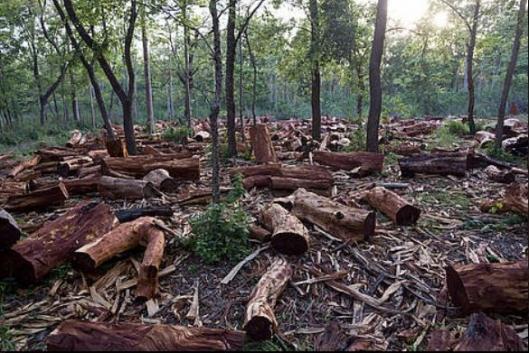The contradictions between the ideals of concepts that originate from within international policy arenas and their implications for forests and forest peoples are clearly evident. This bulletin aims to critically reflect upon what some of these concepts actually mean for communities living in and with the forests.
Terms such as REDD - the main international forest policy mechanism that has impacted tropical forests over the last 15 years, - Sustainability and a wide range of others, have strongly influenced debates within and among civil society groups, NGOs, policy-makers, financial institutions and corporations. Yet, there seem to be radically different assumptions about what these terms actually mean and what their role is or should be.
It is not the intention of this bulletin to embark on a debate of what Sustainability - or any other of the concepts discussed in this bulletin - is or should be. Rather, our aim is to open a space for critical reflection on what these concepts actually set in motion for forests and the people who depend on them.
The many struggles against companies claiming to operate Sustainably or implementing REDD projects in the forests are testimony to the clear contradictions between the alluring ideals cited by those who defend these concepts, and the real implications of the many projects and activities through which these concepts manifest on the ground. Governments commit to a Sustainable economy and companies market their products as Sustainable because they know that this terminology resonates with financial backers and consumers.
And it is important to note that when opposition to a concept becomes too forceful for the concept to achieve its purpose of “greenwashing” business-as-usual destruction of forests, it is quickly replaced by a new concept. What is new, however, tends to only be the name and propaganda while the underlying assumptions that sustain the capitalist economy remain firmly in place. Growing public demand for meaningful government and corporate action to deal with the climate chaos, for example, has given rise to a whole new range of dubious concepts and confusing expressions such as Zero-Net Deforestation commodities, Nature-Based Solutions, Natural Climate Solutions and Climate-Smart practices.
It seems that for just about every “product” and industrial process that causes environmental devastation, a Sustainable version is presented as “the solution”. But by and large, these new versions turn out to be bogus solutions as they do not represent a break with the paradigm of limitless growth, the principal driver of over-production and rampant consumerism. For these so-called solutions, what counts is not the reality of thousands of forest communities confronting continued land grabbing, territorial destruction, the loss of livelihoods, violence and pollution, but rather companies using product labels claiming to support Sustainable development. Roundtables, certification schemes, corporate social and environmental responsibility programs, the safeguards of multilateral banks, among many other such initiatives, hold promises for an eco- and socio-friendly capitalist economy. An economy based on industrial production of Sustainable palm oil, Sustainable tree plantations, Sustainable mining, Sustainable energy. But in reality, such practices do little more than greenwash forest destruction and pave the way for further industrial expansion and corporate control over community territories.
Reports on the disastrous impacts of a specific driver of deforestation, industrial cattle ranching for beef production, for example, often conclude with a list of recommendations for companies, governments and financiers to apply best practices or develop a new set of safeguards or voluntary guidelines. But all too frequently, these recommendations strengthen concepts that actually kill forests, as they rarely demand a radical break with the status quo. Instead, they focus on improvements that lead to a form of destruction that “could have been worse”. Such recommendations provide the excuse for companies to publicise themselves as Sustainable, while communities are left to continue their struggle against land grabbing practises and forest destruction that supposedly “could have been worse”. In this context, the so-called best practices, safeguards and voluntary guidelines become instrumental in the survival and perpetuation of capitalism and the “development model” that is the driver of most forest destruction.
Another important but rather hidden threat of these concepts is that they hinder mobilization and collective organization among civil society groups. Yet, movements, forest communities and support groups still channel much energy into engaging with these concepts, arguing that this engagement will improve their implementation.
With so many ecological and social crises set to continue, thus generating a growing number of concepts that distract from breaking with the (green) capitalist economy, it is perhaps time for reflection. How can grassroots movements and support organizations best avoid being trapped in endless policy debates and dialogue processes connected to concepts that, in the end, serve to perpetuate the killing of forests, while undermining mobilization and collective organization?
Enjoy the reading!
